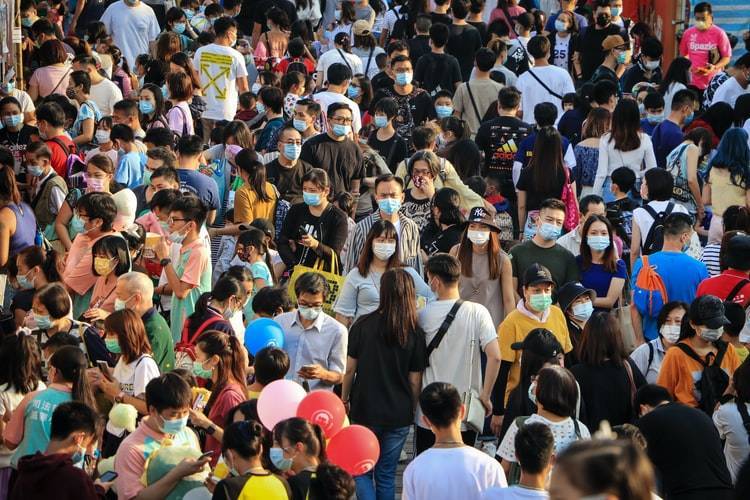Under the title "Study: Social Distancing is Not an Effective Policy to Stop the Spread of COVID-19," the Al Arabiya website published a new study from the Massachusetts Institute of Technology (MIT), which showed that the risk of contracting COVID-19 indoors remains high whether you are two meters or 20 meters away, even when wearing a mask!
The study, published by CNBC, was conducted by two professors from MIT: Martin Bazant, a professor of chemical engineering and applied mathematics, and John Bush, a professor of applied mathematics. They developed a method to calculate the risk of exposure to COVID-19 in an indoor environment, addressing a variety of issues that can affect transmission, including the amount of time a person spends indoors, air filtration and circulation, vaccination, virus variants, mask usage, and respiratory activities such as breathing, eating, talking, or singing.
Bazant stated in an interview, "We argue that there is really no significant benefit to the 6-foot rule, especially when people are wearing masks." He added, "There is no material basis supporting that policy because the air that a person breathes while wearing a mask tends to rise and then settle somewhere else in the room."
He also mentioned that a crucial variable overlooked by the Centers for Disease Control and Prevention (CDC) and the World Health Organization (WHO) is the time a person spends indoors, emphasizing that the longer someone is indoors with an infected person, the greater the chance of virus transmission.
He suggested that policies should involve opening windows or installing new fans to maintain air circulation. Additionally, he noted that occupancy ratios are among the wrong policies, stating that while a meeting of 20 people indoors for a minute might be acceptable, it is not safe for several hours.
He concluded that in evaluating health policies regarding efforts to prevent the spread of COVID-19, "we found that many spaces that were closed really do not need to be closed. Often, the space is large enough, the ventilation is good enough, and the amount of time people spend together allows for these spaces to operate safely even at full capacity."




